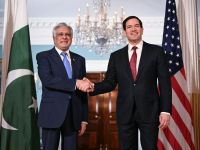Appetite for private equity in the region remains healthy, but there is still room for improvement in audited financial reporting and transparency, experts said.
“Once businesses improve their quality of accounting, financial reporting and corporate governance procedures, they will become even more attractive to overseas private equity firms,” said Michael Armstrong, ICAEW regional director for the Middle East, Africa and South Asia. He was speaking at a debate organised by ICAEW’s corporate finance faculty in the UAE.
According to speakers, the private equity market in the Middle East has matured in the last five years in terms of deal structures, volumes and values.
Overall, the panellists agreed that there is more maturity on the sellers’ side and they recognise the value of private equity more than they did to five years ago. Previously, a lot of education was required and this, in turn, led to delays in transactions.
“We have seen more maturity in private equity in recent years with sellers better understanding the value these transactions can bring beyond just capital raising. They also view it as a preferable option to IPOs. Family-owned businesses, in particular, are looking for ways to grow and expand regionally or internationally and they too are becoming more sophisticated in how they structure and govern their businesses in order to attract private equity investors,” said Alexander Gross.
Panellists noted that while international private equity firms are interested in investing in Middle Eastern businesses, compliance and regulatory aspects remain their biggest concerns.
On the subject of differences between private equity in emerging markets versus more mature markets, the panel explained that in the case of the Middle East, these transactions tend to be more complex due to a lack of data, cultural and language challenges and current inexperience of senior management in leading a company through these large, intricate deals.
Although the speakers agreed that the rewards of private equity are high in the region, thanks to the availability of wealth, a young and ambitious demographic, business opportunities and infrastructure, they said the risks are equally high due to the unpredictable geopolitical situation. Event attendees also agreed that governance is vital for businesses as it helps to improve performance, strengthens reputation and credibility, and best prepares them to raise capital through the different routes, whether private equity or IPOs.
The seminar was moderated by Alexander Gross, director at Merrill DataSite. Panellists at the event included Taimoor Labib, managing director and head of global private equity at Standard Chartered; Imad Ghandour, managing director at CedarBridge Partners; Ashish Dave, partner at KPMG; Ahmed Osman, managing director at deNovo Corporate Advisors; and Mohammad Nasr, vice-president of private equity at Gulf Capital.
By Isaac John








